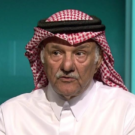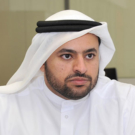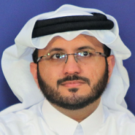Speakers

Mohammed Al-Misfer
Professor of Political Science
Qatar University

Mohammed A. Al-Khulaifi
Dean of the College of Law
Qatar University

Majed Al-Ansari
Professor of Political Sociology
Qatar University
Moderator
Event Summary
On September 26, 2017, Arab Center Washington DC (ACW) hosted a panel of experts to discuss some of the salient issues in the current Gulf crisis. ACW Executive Director Khalil Jahshan offered welcoming remarks and said that the crisis started on June 5 when four countries—Saudi Arabia, the United Arab Emirates, Bahrain, and Egypt—imposed a boycott and blockade of Qatar. He said that “this was not the first such crisis between GCC members, but it quickly deteriorated into the most intense and pronounced dispute in the Gulf threatening the effectiveness and very future of the GCC as a regional mechanism.” The three panelists, all from Qatar University, were Dr. Mohammed Al-Misfer, Professor of Political Science; Dr. Mohammed A. Al-Khulaifi, Dean of the College of Law, and Dr. Majed Al-Ansari, Professor of Political Sociology.
Dr. Al-Misfer said that during the 115 days since the crisis started, the world has reacted to the blockade of Qatar “with shock and disbelief” as the international community “marvels at how this small country has weathered this crisis.” He reiterated the position that the blockading countries presented no evidence to support their false claims, noting that they are politically motivated and this sets a dangerous precedent. It is these four countries that “have decided to escalate the crisis,” he asserted; they have disrespected Qatar’s sovereignty and violated international law, trade agreements, and the human rights of the Qatari people. One of the most important aspects of the blockade, he said, is these countries’ attempt to create internal conflict in Qatar that would eventually lead to the cancellation of Qatar’s hosting of the World Cup in 2022.
Dr. Al-Misfer noted that he did not believe there would be military intervention against Qatar in the future, but that there would be more incitement to intensify the conflict through triggering tribal conflicts. He said that the crisis has impelled Qatar toward increased self-reliance economically and socially and has actually unified the country. Dr. Al-Misfer concluded that it is “our collective responsibility” as scholars, media professionals, and others to uncover the truth about the crisis.
Dr. Al-Khulaifi focused on the legal implications of the crisis. He highlighted the international law perspective, which represents “the supreme and main reference for issues in international affairs.” The connection between the legal and political realms, he explained, is enshrined in international standards and principles such as the threat or use of military, political, or diplomatic pressure, and these have been violated in this crisis. The siege on Qatar violates international law, which prohibits interference in states’ sovereignty. Indeed, a state—no matter its size—has full freedom to exercise its internal and external affairs without interference. In addition, Dr. Al-Khulaifi mentioned the principle of peaceful settlement of disputes through such instruments as negotiations and judicial initiatives, noting that these have not been pursued. He said that the blockading countries should work on protecting human dignity and the freedoms of education, religion, expression, and transportation.
All these principles also accede to international organizations, he said, such as the Arab League, the GCC, and the Organization of the Islamic Conference. As for the question, “What is next?” he outlined three important mechanisms: political procedures such as negotiations and diplomacy; human rights investigations; and judicial proceedings at the United Nations and the International Court of Justice.
Dr. Al-Ansari set out to convey the perceptions of Qatari academics, not politicians. Why did this crisis happen, he asked, and what are the direct reasons? “I can tell you what it is not about,” he said. “It is not about terrorism,” he said referring to the claims presented against Qatar. It is also not about Qatari interference in the affairs of other states, he said, pointing to US State Department reports that Qatar is not meddling in the affairs of other countries. Lastly, he noted that it is not about Iran, where other GCC countries have more relations with Iran than Qatar does. There are many reasons for this, he explained, including economics. “For the UAE,” he said, “it’s basically like having two Singapores right next to each other”—that is, both Qatar and the UAE are competing for international investment and the role of a hub for exports and imports around the globe. “UAE is uncomfortable with Qatar’s emerging economic model,” he added, but as a consumer he has not felt the impact of the siege on the Qatari markets or economy, as the state has subsidized some commodities and eased the legal framework for businesses.
For Saudi Arabia, he explained there are economic factors as well, but also internal politics and succession issues at play. The kingdom needs “a political win,” he said, as its involvements in Yemen, Syria, and Libya have not been fruitful. The crisis with Qatar, therefore, presented a “quick win.” As for the question “Why now?” (regarding the outbreak of the Gulf crisis), Dr. Al-Ansari remarked, “The answer is two words: Donald Trump!” He also addressed what he called the “cultural issue” whereby states in the Arab Gulf region have traditionally regarded Saudi Arabia as the respected “elder sister” in charge of decision-making. In this scenario, he said, Qatar is like the rebellious teenager who wants independence. Indeed, he said, tribal and personal rivalries for dominance continue to contribute to the crisis and drive events in the region.

